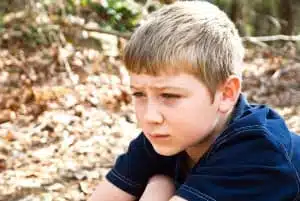FOI request finds video links are not available in one third of police force areas meaning children are forced to potentially face abuser in court
The NSPCC has renewed its call for children to be able to give their evidence from a location away from court.
The children’s charity has found that while many police force areas do not have remote video link facilities located away from court buildings, the few that do have rarely used them.
Peter Wanless, CEO of the NSPCC, said: “Children have to be tremendously brave to be a witness against someone who has abused them – something that would be daunting even for an adult.
“We must make sure they have as much support as possible when giving evidence. An essential part of this is allowing them to do so where and when they are likely to feel comfortable and confident.
The charity conducted a Freedom of Information request which revealed that victims of child abuse face a postcode lottery when getting help to give evidence against offenders.
One third of the police forces who responded said that they do not have ‘remote video links,’ which could potentially force children to undergo the ordeal of bumping into their abuser at court.
Thirty four police forces responded to the FOI request which demonstrated the postcode lottery across England and Wales. Of these forces:
- 20 said they have remote video links sites that have been used, but not all gave any further detail
- 2 were in the process of setting up remote video link sites
- In 1 area, 21 child witnesses had used remote video links to give evidence over the last 2 years. In another area, they'd only been used once.
The charity’s Order in Court campaign has been putting pressure on government to ensure that the justice system is more child-friendly when it comes to giving evidence against offenders.
The campaign calls for:
- Children to be able to give their evidence from a location away from court
- Young witnesses to have access to a Registered Intermediary - a trained communications expert - to help them understand what is happening with the police and court whenever necessary
- All judges and lawyers taking child sexual abuse cases should undertake mandatory specialist training.
“Some courts and police forces are making a big effort to ease the burden for child witnesses but these figures show there is still some way to go,” added Wanless.
More on the campaign is available here.


